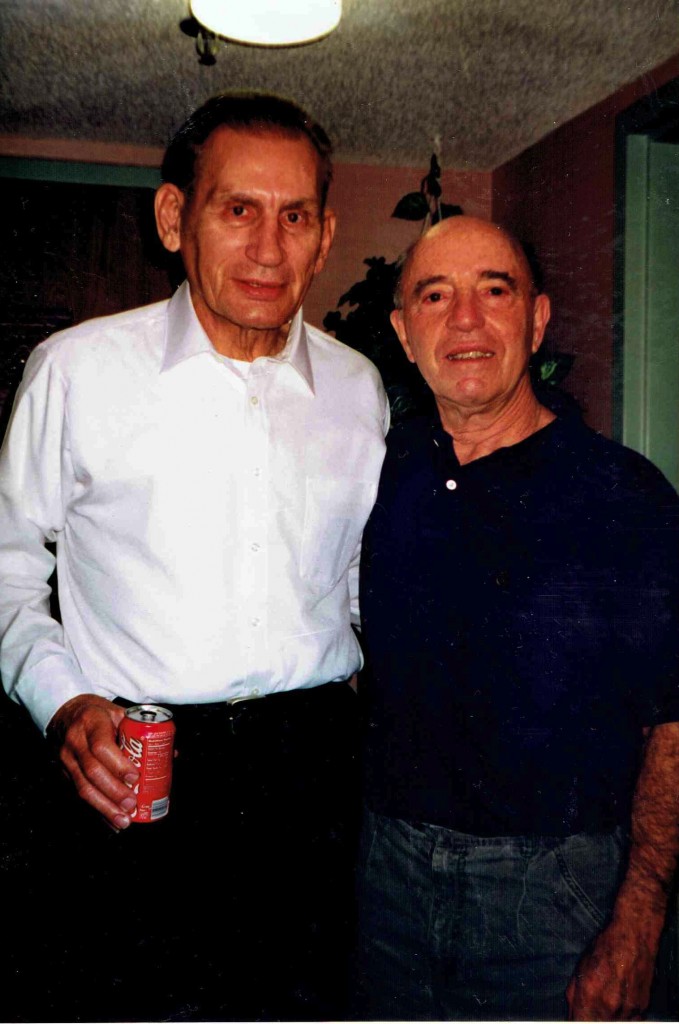Baptism and Resurrection
Imjin River, Korea August 1952
Korea: August 21, 1952. Lt. Theiss, our platoon leader told me to go to Massey, our armorer. He will put a bunkerbomb together, and tell me how to deploy it.
Our platoon was gong to wade up the Imjin River, cross a sandbar then destroy a bunker at the base of a cliff overlooking the Imjin.
I was the platoon runner. If I wasn’t needed to communicate between Charlie, our point man and the leader of a raid or patrol, I became the “utility man”. A bunkerbomb? I asked Charlie who had encyclopedic knowledge of anything that exploded.
“What’s a bunkerbomb, Charlie?”
“I’m leading the way up the river, and you will carry it,” was his reply.
At last, I knew what a bunkerbomb was.
Massey showed me the bomb. It consisted of a pole about the length of a broomstick. Connected to its end was a white phosphorus grenade adjacent to a machine gun canister half-filled with napalm.
“You pull the pin like you pull the pin on a fragmentation grenade.” He warned me, “Get the hell out of there as fast as you can.”
In the morning, our reverse slope was occupied by strangers with hot meals; our cooks. Heartburn from C-rations has a place all of its own in the annals of hyperacidity. With three days before our raid my digestive system plastered anything I ate with hydrochloric acid. Even the Lister bag water generated acid reflux.
Why were we doing this? The bunker is directly opposite I company’s position adjacent to us on our right. Why don’t they blast it with a recoilless rifle or machine-gun fire?
Who was I, a private, to question an order from our platoon leader?
It was two days before the raid. In the evening we would go through a reenactment of the actual event with the bunker bomb. A day passed. Twilight, it was time for the rehearsal.
I crawled to the “bunker”. Our men raked it with a BAR and their M1s. I pulled the pin on the phosphorus grenade, placed it inside the “bunker” then ran like an Olympian. A billowing, bright flame set the “bunker” ablaze.
Another day, another letter from Elaine.
I haven’t heard from you in two weeks. I hope you’re alright. Where are you?
She hasn’t heard from me in two weeks. I haven’t seen the 101 pack (a small wooden crate with toothbrushes, pens, writing paper, soap, etc.) in three weeks, so no letters.
On stage everybody, it’s opening night!
We entered ankle-deep water then proceeded east. I rested the bunkerbomb on my shoulders. Wading forward, the water reached knee-length.
Our platoon moved slowly up the river with Charlie at the point and Lt. Theiss at the center. I’m sure that the soothing, tepid water dissolved some of the flakes I had accumulated on my month old underwear.
With platoon leader, Lt. Theiss alongside of me, and Charley pointing the way towards the sandbar, a terrifying thought came over me.
What if the sniper spots us. What if he pierces the canister? Our squad would be reduced to embers floating down the Imjin.
Not a word was exchanged. Fording through the river I had hoped to see a command of confidence in our platoon leader, but he was as mechanical as the rest of us.
Our squad was moving like robots. What were they thinking? I was consumed with “whys” and “what ifs”.
As the riverbed began to descend, the water began to rise. I raised the bunker bomb above my shoulders. Charley, leading us was 6’ 2”, I was 5’ 7”. A few more steps and I would be tasting the Imjin.
“Lieutenant,” shouted Charley, “Some idiot up on the cliff threw a grenade at me! Weren’t they told we were coming?”
Lt. Theiss felt there may be more grenades if we went further, so he called off the mission.
As I stood, holding the bomb aloft, and getting a slight taste of the Imjin, I was elated.
Although it was suspected that the Chinese rifleman who killed Sgt. Rutledge and Harry Lapich was in the concealed bunker, it could have been easily destroyed by a recoilless rifle from our side of the river.
It was not my way, it was not the platoon’s way, it was the army way.

Adapted from: Cold Ground’s Been My Bed: A Korean War Memoir by Daniel Wolfe.
danielwolfebooks@aol.com